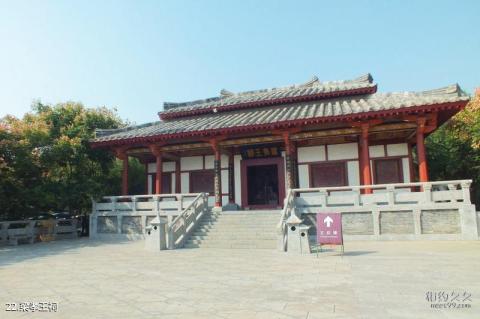
Introduction to the Temple of Prince Xiao of Liang: Liu Wu, a nobleman in the Western Han Dynasty, was born to the Empress Dowager Dou along with Princess Guantao and Emperor Jing of the Han Dynasty, and was the second son of Emperor Wen of the Han Dynasty. In 178 BC, Liu Wu, Liu Shen and Liu Yi were respectively named King of Dai, King of Taiyuan and King of Liang by Emperor Wen of the Han Dynasty on the same day. In 176 BC, Liu Wu was renamed King of Huaiyang. In 168 BC, King Xuan of Liang Liu Yi died without heirs, and Liu Wu was granted the title of King of Liang. In 161 BC, Liu Wu was ordered to go from the capital Chang'an to Suiyang (now Shangqiu, Henan), the capital of the Liang Kingdom. During Liu Wu's reign, he led troops to resist the attack of Wu King Liu Bi during the Seven Kingdoms Rebellion, and made great achievements. Later, he relied on his mother's favor and the vast land of Liang to compete for the crown prince's position. He died of illness in October 144 BC and was buried in Mangdang Mountain in Yongcheng. After reigning for 23 years, his posthumous title was Xiao, so he was named King Xiao of Liang.
